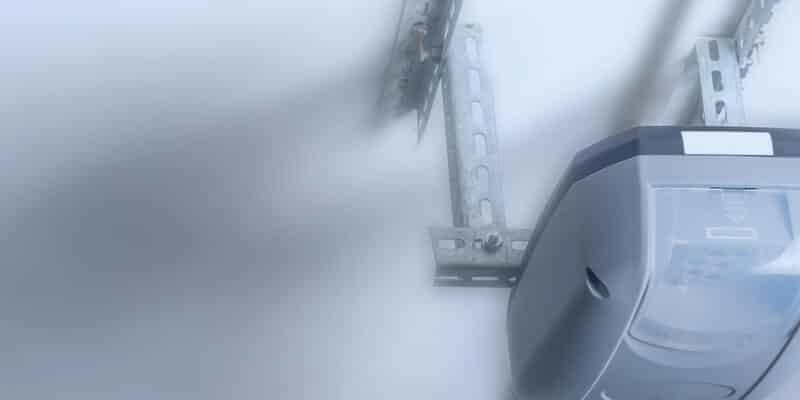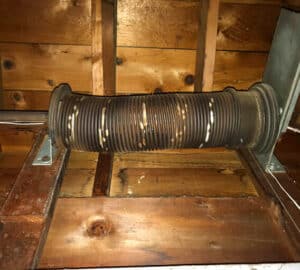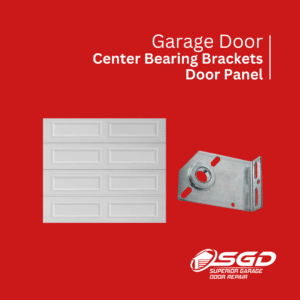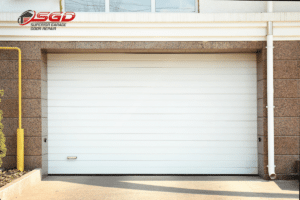Ever been late because your garage door decided today was the day it wouldn’t open? Or perhaps, you’ve returned home during a downpour, only to find your garage door unresponsive. These aren’t just inconveniences; they’re common frustrations for many homeowners. In this detailed guide, we’ll explore the why and how behind these all-too-common issues, providing you with the knowledge to fix or mitigate them.
Understanding Garage Door Openers
How Garage Door Openers Work
At their core, garage door openers rely on a simple mechanism: a motor drives a trolley along a track, which in turn opens or closes the door. This process is controlled by signals from remote controls, wall switches, or even smartphones in more advanced models. Despite their simplicity, when something goes wrong, it can seem daunting to troubleshoot.
Signs Your Garage Door Opener Has Issues
The first step in addressing a problem is recognizing it. Common signs include the door not responding to the remote or wall switch, strange noises during operation, the door reversing immediately after touching the ground, or the motor running without moving the door.
Common Garage Door Opener Problems
-
Garage Door Won’t Open or Close
- Dead batteries in remote: Start with the simplest solutions. Dead batteries are the most common culprit and are easily fixed.
- Misaligned photo-eye sensors: These sensors prevent the door from closing on objects in its path. If they’re dirty or misaligned, they can prevent operation entirely.
- Obstructions in the door’s path: Check for rocks, toys, or debris that might block the door’s movement.
- Troubleshooting: Check and replace batteries, ensure sensors are aligned and clean, and remove any obstructions.
-
Garage Door Reverses Before or After Hitting the Floor
- Misadjusted limit settings: The door might reverse if the close limit setting is off, making it think it has hit an obstacle.
- Faulty safety sensors: Similar to misalignment, but here they might be faulty or dirty, causing incorrect detections.
- Troubleshooting: Adjust the limit settings according to the manufacturer’s guidelines and clean or replace the safety sensors.
-
Garage Door Stops When Opening or Closing
- Limit settings need adjustment: Incorrect settings can cause the door to stop prematurely.
- Worn-out springs or cables: These components can affect the door’s ability to open or close smoothly.
- Troubleshooting: Adjust the limit settings and inspect springs and cables for wear, replacing if necessary.
-
Motor Runs But Garage Door Doesn’t Move
- Broken gears inside the opener: The motor can run, but broken gears prevent it from engaging the door.
- Disconnected trolley: Manual operation or emergency release might have disconnected the door from the trolley.
- Troubleshooting: Inspect the opener for broken gears and ensure the trolley is engaged with the door.
-
Garage Door Won’t Open With Wall Switch
- Electrical issues: Wiring problems can interrupt the connection between the switch and the opener.
- Faulty wall switch: The switch itself may have failed, preventing the door from operating.
- Troubleshooting: Check the electrical connections and replace the wall switch if necessary.
-
Remote Control Works But Wall Switch Does Not
- Faulty wall switch or wiring: A breakdown in the wall switch circuit can cause it to fail.
- Troubleshooting: Replace the wall switch and check the wiring for any damage or disconnections.
-
Garage Door Opens or Closes by Itself
- Short in the wiring: Shorts can cause unpredictable behavior by sending false signals.
- Faulty remote controls: Damaged remotes might send signals unintentionally.
- Troubleshooting: Inspect the wiring for shorts and replace any faulty remotes. Consider resetting the opener’s codes to prevent interference.
-
Loud Noises When Operating the Garage Door
- Lack of lubrication: Proper lubrication is essential for smooth operation and to minimize noise.
- Loose hardware: Over time, bolts and screws can loosen, causing parts to rattle or shake.
- Worn rollers and hinges: Wear and tear on these components can lead to noisy operation.
- Troubleshooting: Lubricate all moving parts regularly, tighten any loose hardware, and replace worn rollers and hinges.
When to Call a Professional
Identifying Complex Issues
If you’ve tried basic troubleshooting without success, the problem may be more complex. Professional technicians can diagnose and fix issues that are not apparent to the untrained eye.
Safety and Warranty Considerations
Garage door systems are under high tension and can be dangerous. Professional repairs ensure safety and preserve any warranties.
Preventative Maintenance
Regular Inspection and Cleaning
A regular schedule of inspection and cleaning can prevent many issues. Check for wear and tear, lubricate moving parts, and ensure the tracks are clean and aligned.
Lubrication of Moving Parts
Proper lubrication reduces wear and ensures smooth operation. Use a lubricant recommended by the manufacturer or a professional.
Updating or Upgrading Components
As technology advances, newer models offer improved safety, security, and convenience features. Consider upgrading if your system is outdated or frequently malfunctions.
Conclusion
Facing a garage door opener problem can be frustrating, but understanding common issues and how to address them can make the process less daunting. Regular maintenance, combined with a bit of troubleshooting knowledge, can keep your garage door operating smoothly. And remember, when in doubt, professional help is just a call away.
FAQs
What to do if your garage door opener remote isn’t working?
First, replace the batteries. If that doesn’t resolve the issue, reprogramming the remote or consulting a professional may be necessary.
Can weather affect my garage door opener?
Absolutely. Extreme cold or heat can affect the performance of your opener and the door itself. Regular maintenance can mitigate these effects.
How often should I perform maintenance on my garage door opener?
Annual maintenance is recommended, though checking it seasonally can help catch issues early.
What are the signs that my garage door opener needs to be replaced?
Frequent malfunctions, increased noise, and failure of safety features are clear signs that it’s time for an upgrade.
Is it safe to repair a garage door opener myself?
For basic issues, yes. However, when it comes to electrical components or tension springs, it’s safer and more prudent to call in a professional.








